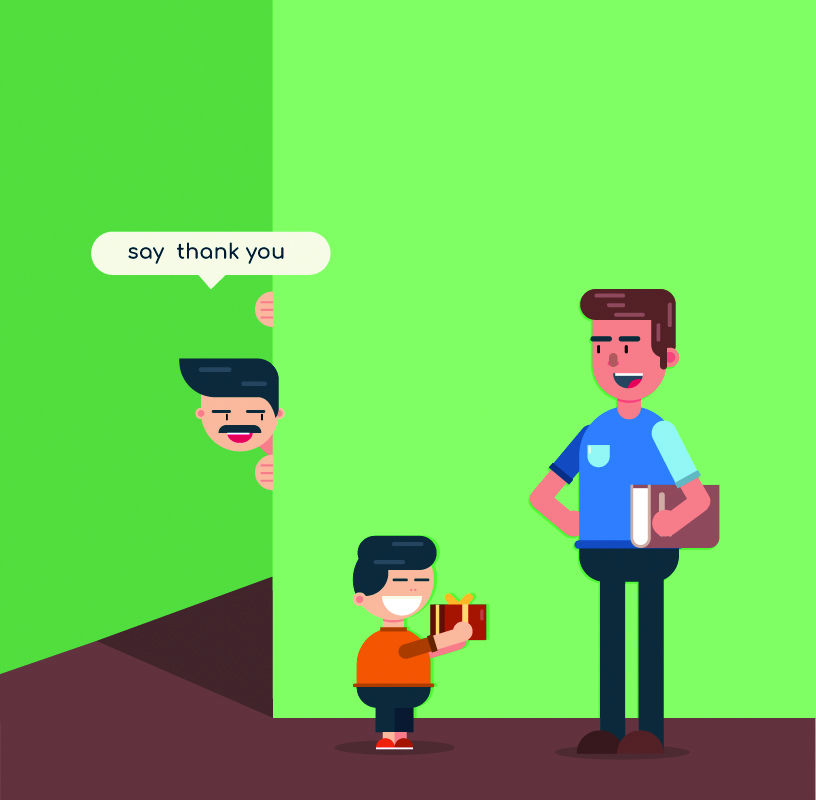Social Skils & Manners
Parents try to teach their children good manners and social skills starting at a young age. Their efforts are far more likely to bear result if they – instead of ordering their children to say certain phrases – model good behavior themselves.

Young children are usually taught to mimic and say certain phrases, and when to say them. “”Say please,” “Say thank you,” and “Say sorry” are very common phrases you hear parents telling their children. Mirroring and parroting are common practices, but if we want them to develop genuine kindness, if we want them to develop and express true empathy, if we want them to develop the ability to feel and express honest gratitude and sorrow, directly ordering them is not the right way.
Instead of giving direct orders, we suggest you trusting your children and modeling for them good moral values and positive attitudes, things you want to teach them. If young children are treated with kindness and respect, they will in turn learn to treat and talk to others with genuine kindness and respect. As a parent, you don’t need to constantly remind and correct them. It is a wonderful experience to witness a young child acting and responding from a genuine place in the heart, instead of him or her parroting a half-hearted, and hastily issued worn out phrase.
Children learn a lot simply by observing, listening, and absorbing their parents’ actions and attitudes. Trusting them and letting them learn at their own pace can be a real test of patience. They express and mirror the things that they witness and experience in their own unique ways. In order for them to learn good manners, such as genuinely saying Please, Thank You and Sorry, we have to model those manners ourselves.
For example, we can say please and thank you to the children when requesting something from them. We can express our sincerest apologies and say sorry when we make a mistake, furthermore, we can express our gratitude gracefully or thank someone on behalf of the children’s. And we can certainly greet someone warmly when we meet them on the road, or come for a visit.
But you need to be gentle with young children. They have their own pace of learning and most of the time, it is hit and miss. If you trust yourself, are patient, and continue to model good manners in front of your children, the trust that you have placed in them will surely result in their expressing good manners spontaneously.
Young children are gentle, and trusting. Trust. Model. Believe in the inherent goodness and intelligence of your children. Please, thank you, and I’m sorry will come in their own good time.


